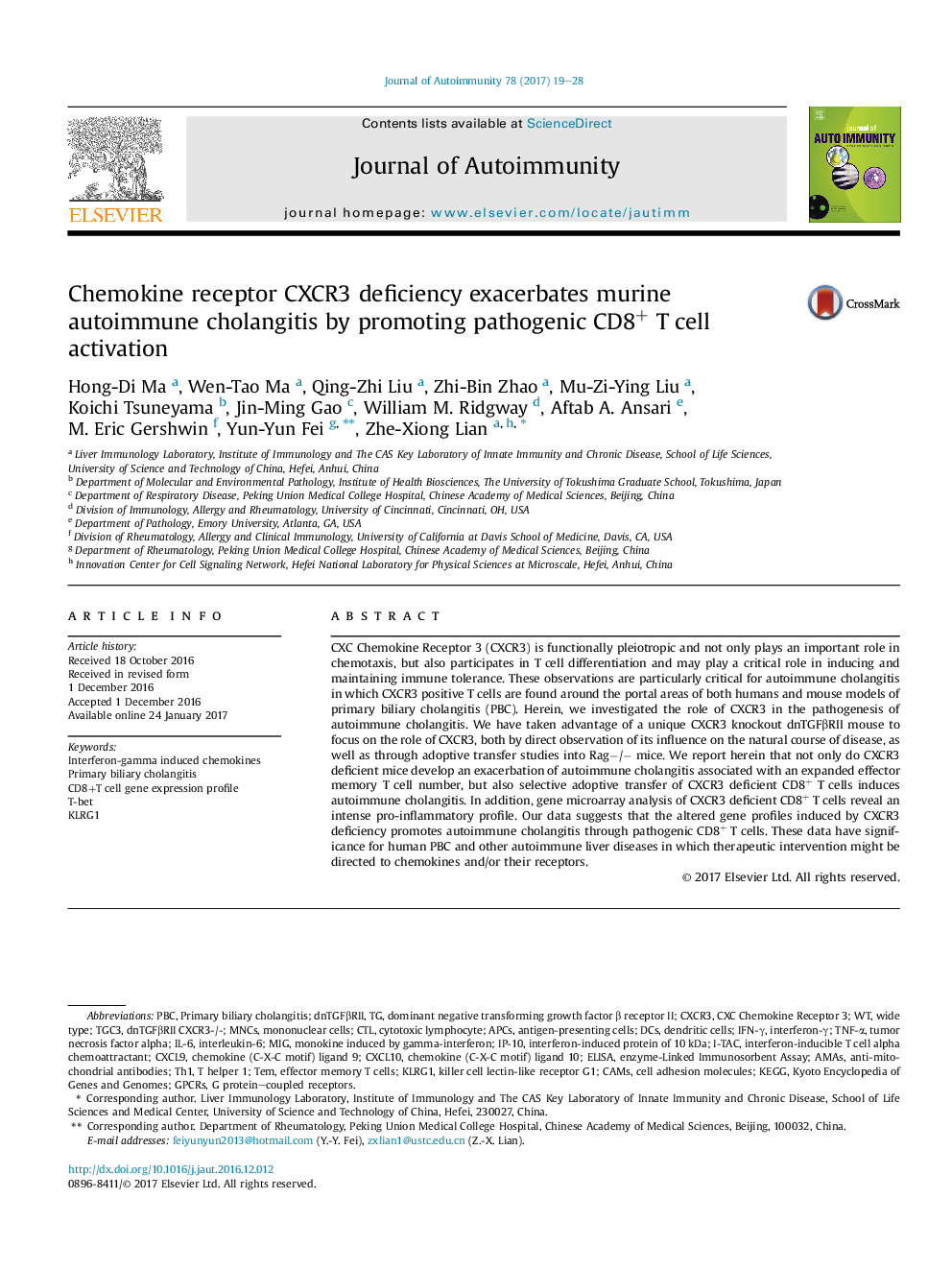| کد مقاله | کد نشریه | سال انتشار | مقاله انگلیسی | نسخه تمام متن |
|---|---|---|---|---|
| 5667855 | 1592271 | 2017 | 10 صفحه PDF | دانلود رایگان |

- Chemokine receptor CXCR3 deficiency promotes autoimmune cholangitis.
- CXCR3 deficiency expands the effector memory T cell subset with pathogenic potential in the murine PBC model.
- CXCR3 deficient CD8+ T cells display a pro-inflammatory and hyper-activated profile in gene expression.
CXC Chemokine Receptor 3 (CXCR3) is functionally pleiotropic and not only plays an important role in chemotaxis, but also participates in T cell differentiation and may play a critical role in inducing and maintaining immune tolerance. These observations are particularly critical for autoimmune cholangitis in which CXCR3 positive T cells are found around the portal areas of both humans and mouse models of primary biliary cholangitis (PBC). Herein, we investigated the role of CXCR3 in the pathogenesis of autoimmune cholangitis. We have taken advantage of a unique CXCR3 knockout dnTGFβRII mouse to focus on the role of CXCR3, both by direct observation of its influence on the natural course of disease, as well as through adoptive transfer studies into Ragâ/â mice. We report herein that not only do CXCR3 deficient mice develop an exacerbation of autoimmune cholangitis associated with an expanded effector memory T cell number, but also selective adoptive transfer of CXCR3 deficient CD8+ T cells induces autoimmune cholangitis. In addition, gene microarray analysis of CXCR3 deficient CD8+ T cells reveal an intense pro-inflammatory profile. Our data suggests that the altered gene profiles induced by CXCR3 deficiency promotes autoimmune cholangitis through pathogenic CD8+ T cells. These data have significance for human PBC and other autoimmune liver diseases in which therapeutic intervention might be directed to chemokines and/or their receptors.
Journal: Journal of Autoimmunity - Volume 78, March 2017, Pages 19-28